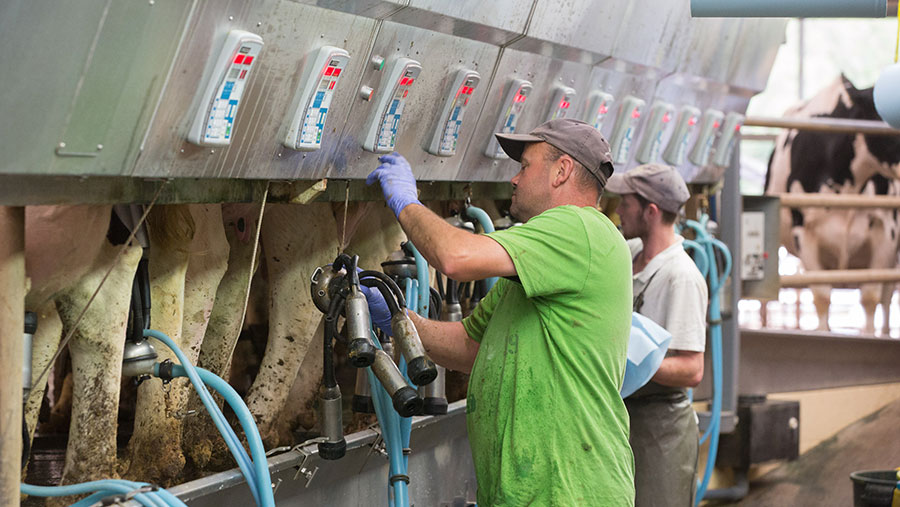Spiralling costs forcing farmers to change business plans
 © Tim Scrivener
© Tim Scrivener Spiralling costs are forcing farmers to make significant changes to their food production plans, with some facing the prospect of going out of business, according to two new NFU surveys of members’ intentions.
A survey of 610 dairy farmers reveals 7% believe they are likely to stop producing milk by 2024, which nationally could mean 840 producers leaving the industry, while 22% said they were uncertain to continue dairying.
Small producers were more likely to cease production than larger producers – 12% for those producing less than 1m litres, 6% for 1m-2.99m litres, and 0% for 3m litres or more.
See also: Rising costs strain farmer and retailer relations on pricing
The most common reasons for ceasing milk production in the next two years were: insufficient returns – for example, poor milk prices (45%) – and the effect of government regulation (43%). Increased costs, retirement and lack of labour were also cited.
However, the survey was done in the spring, when milk prices had not increased to current levels.
Nine out of 10 dairy farmers also expressed concern about the possibility of rising feed, fuel and fertiliser prices over the next two years.
More than three-quarters (76%) of respondents said they were concerned about government regulation.
NFU Dairy board chairman Michael Oakes said: “Basically, the message that came out of the survey was dairy farmers want to see a decent return from the market, stability in input prices and supported regulation.
“They don’t want regulation that’s going to force them to spend a whole lot of money that won’t necessarily add to the bottom line and will ultimately come as a cost to the industry. The Clean Air Strategy is potentially one of those areas.”
Arable farmer survey
A separate survey of 525 arable farmers showed one-third had changed their cropping plans in the past four months, which 90% of growers attributed to rocketing fertiliser costs.
The survey also indicates that farmers are starting to switch from growing milling wheat for bread to feed wheat for animals because it requires less fertiliser.
The NFU said rising costs are denting farmers’ confidence to invest in their businesses, and it has demanded support from the government to secure domestic food production.
With the importance of food production recognised in the National Food Strategy, the NFU is now asking the government to put these words into action by introducing a statutory duty for ministers to assess the effect any new policy or regulation will have on domestic food production.
NFU president Minette Batters said: “Farmers are at the heart of delivering many of the ambitions government holds – whether that is food production, environmental protection, or reaching net zero.
“That’s why it is so important for all departments to have a duty to consider food production, so there is a cross-government approach that truly values British food and farming and delivers for Britain.”
